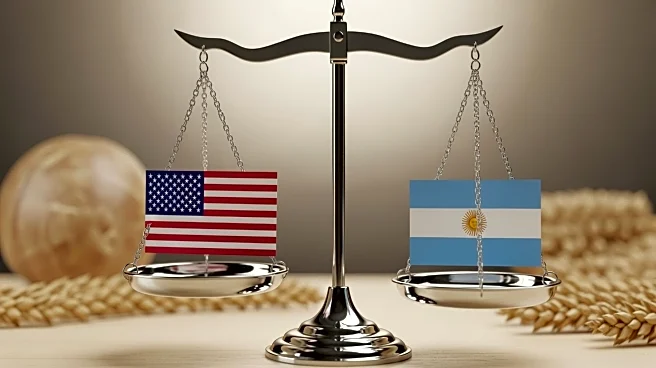What's Happening?
President Donald Trump announced that the United States might purchase beef from Argentina to help lower domestic beef prices. This statement was made aboard Air Force One during a flight from Florida
to Washington. The proposal is part of Trump's broader strategy to manage inflation, which has been affected by high beef prices due to factors such as drought and reduced imports from Mexico. The latter is attributed to a flesh-eating pest affecting cattle herds. Additionally, Trump is supporting Argentina's economy by facilitating a $20 billion credit swap line and securing further financing from sovereign funds and the private sector, aligning with his support for Argentine President Javier Milei.
Why It's Important?
The potential import of Argentine beef could have significant implications for the U.S. beef market and consumers. By increasing the supply of beef, prices could decrease, providing relief to consumers facing high food costs. This move also highlights the interconnectedness of global economies, as the U.S. seeks to stabilize its market while simultaneously aiding Argentina's economic challenges. The decision could impact U.S. beef producers, who may face increased competition from imported products. Furthermore, this action underscores the administration's efforts to address inflationary pressures, which are a critical concern for the U.S. economy.
What's Next?
If the U.S. proceeds with importing Argentine beef, it could lead to negotiations on trade terms and regulatory approvals to ensure the beef meets U.S. standards. Stakeholders, including U.S. beef producers and consumer advocacy groups, may respond to this proposal, potentially influencing its implementation. The administration will likely continue monitoring inflation and exploring additional measures to stabilize prices. The outcome of these efforts could affect the political landscape, especially with upcoming elections, as economic issues remain a priority for voters.











